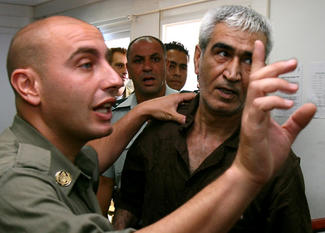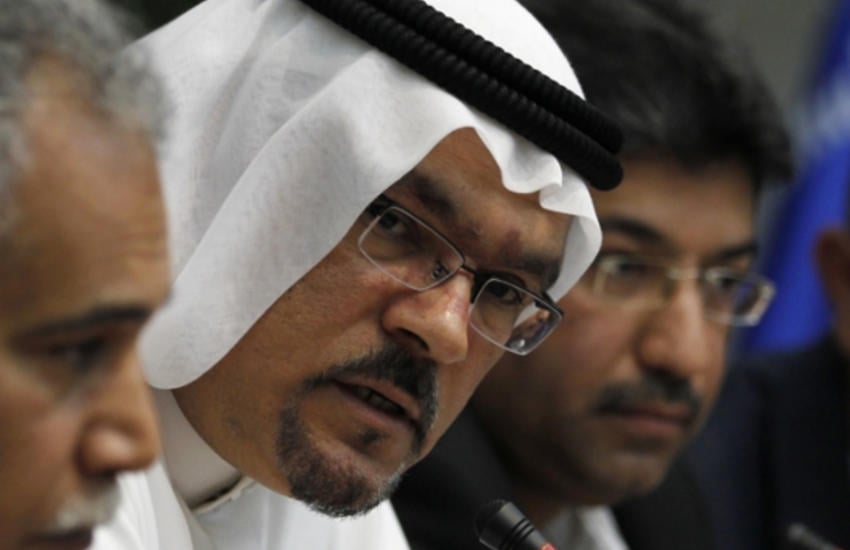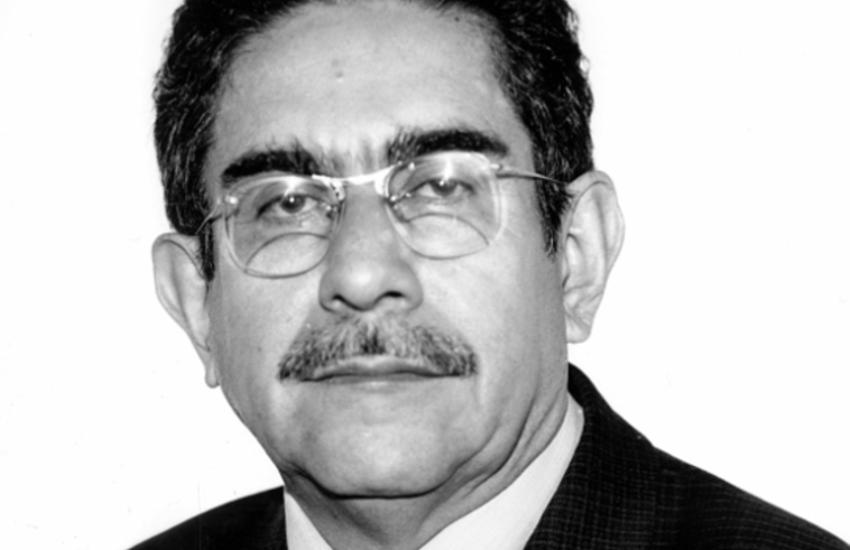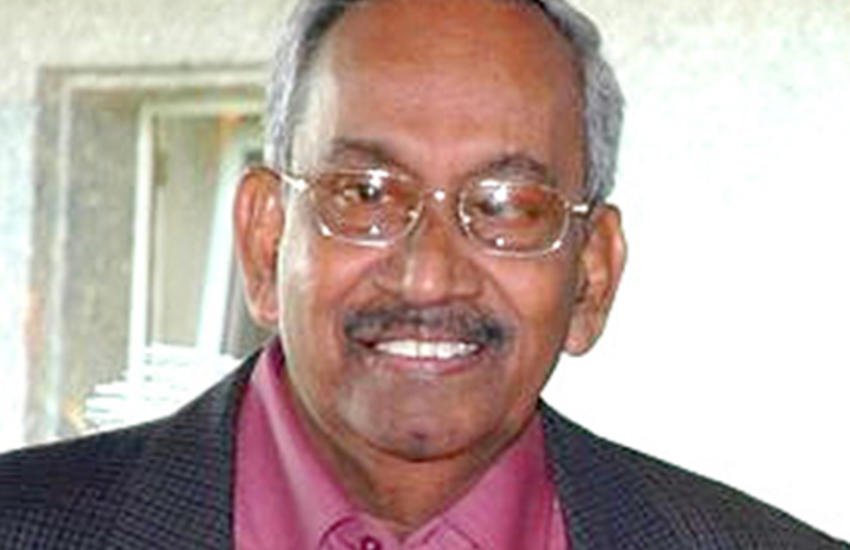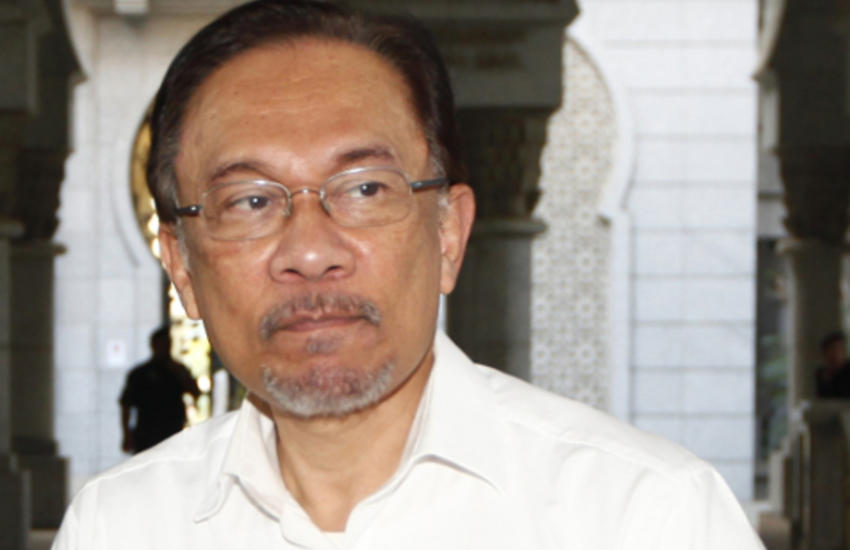Palestinian MP Ahmad Sa’adat was abducted by Israeli forces from a Jericho jail before being sentenced to 30 years in prison in Israel.
Ahmad Sa’adat was seized by Israeli forces in 2006 after a dramatic 12-hour military operation at a jail in the West Bank town of Jericho.
He had originally been arrested by Palestinian authorities in 2002, after the group of which he was secretary general, the Popular Front for the Liberation of Palestine (PFLP), said it had killed Israeli Tourism Minister Rehavam Zeevi, in retaliation for the killing of Sa’adat’s predecessor.
Under a deal called the Ramallah Agreement, Ahmad Sa’adat and five others accused by Israel of the killing were being held at the Jericho prison. In January 2006, he was elected to the Palestinian parliament whilst incarcerated.
In March 2006, Israeli forces attacked the Jericho jail with bulldozers and tanks. Two Palestinians were killed, and Ahmad Sa’adat and other Palestinian prisoners were taken to Israel.
A month later, Israeli authorities dropped the charge of killing Rehavam Zeevi, but charged him with 19 other offences reportedly linked to his leadership of the PFLP. None of these charges alleged any direct involvement with acts of violence.
Sa’adat and his lawyer remained silent throughout the military court hearing, refusing to recognize its validity. IPU too expressed concern, arguing that such a court did not comply with fair trial guarantees.
In late 2008, after nearly seven years of detention, Sa’adat was sentenced to 30 years in prison.
Since then, he has faced repeated prison transfers and spent three years in isolation. In June 2009, he went on a nine-day hunger strike in protest at his solitary confinement. His isolation ended only in May 2012 as part of an agreement ending a hunger strike by other Palestinian detainees.
During his detention, he has only had limited contact with his wife and elder son. He hasn’t seen his other children since he was first arrested in 2002. A 2013 ruling affecting all Palestinian prisoners also meant he was denied visiting rights from his first grandchild.
He remains largely isolated from the outside world. His personal books have been confiscated and he is routinely denied access to television, radio and newspapers and to the prison canteen.
Since 2006, IPU has been calling on Israel to release Sa’adat, arguing the charges and proceedings against him were based only on political considerations, not evidence of criminal activity. IPU remains deeply disturbed by the lack of due process at the investigation stage of his trial and at the inhumane conditions of his detention.





